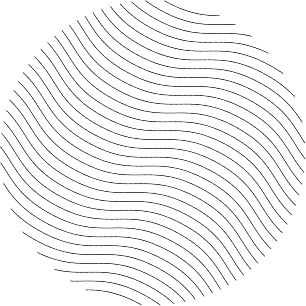Biography
Alfonso Luis Herrera López, Mexican naturalist (Ciudad de Mexico 03 July 1868 – Ciudad de Mexico 17 Setember 1942)
Introduced the notion that the structure and functions of living beings could be explained physical and chemical laws based in Recueil de lois de la biologie générale
Demonstrated the abiotic synthesis of organic compounds
Authored Nociones de biologia (1904), translated into French as Notions de biologie et de plasmogenie comparées (1906) in which presented the theory of plasmogeny
La Plasmogenia: nueva ciencia del origen de la vida (1932)
A new theory of the origin and nature of life. Science 96:14, 1942
Proposed that physico-chemical properties of protoplasm can be simulated by chemical compounds
Established the concept of chemical evolution (1910) before Melvin Calvin
Used chemicals such as olive oil, sodium hydroxide, gasoline and thiocyanate for his studies about plasmogeny
Obtained the sulphobes and colpoids, colloidal microstructures from mixture of ammonium sulphocyanide and formaldehyde (1897)
First to synthesize amino acids in investigations about the origin of life
Recreated a number of invertebrate animals using glass and crystal (such models were reproduced by Musée de Nancy, France)
Catalogo de imitaciones en cristal de varios animals invertebrados del Museo Nacional (1897)
NEW THEORIES
With D. Vergara Lope. Nouvelle théorie de la respiration. Hématose et osmose des gase dissouts. La respiration de la tamise. Mem. Soc. Cient. A. Alzate 11:309 (1897-8)
Nueva teoria biologica. La hidratación de los coloides en sus relaciones con el crecimiento y la patologia. Medicina (1921)
Nueva teoria cosmogônica del proto-rayo. Estudios (Valencia) 13:27, 1935
OTHER CONTRIBUTIONS
Described the structure and vocal use of the fonation apparatus in two vertebrate species
Aparatos para fonación de la Ortalis vetula maccalli y en Pithuophis deppei. La Naturaleza 26(1):278, 1889
Developed a new method for studying the morphology
Caracteres histologicos diferenciales de varias drogas indígenas. Nuevo método de estúdio de la morfologia. Aplicación a la hipotesis monística. El Estudio 4:152, 1891
Described a special kind of sensitivity
Forma especial de sensibilidad observada en insectos decapitados. Mem. Soc. Cien. A. Alzate 5:225, 1891-2
Authored a theoretical proposition about the organization of natural history museums
Les musées de l’avenir. Mem. Acad. Nac. Cien. Antonio Alzate 9:221, 1895
With D. Vergara Lope authored La vie sur les haut plateau. Influence de la pression barometrique sur la constitution et le développement des etres organismes (1899), for which received Hodgkin Medal from Smithsonian Institution
Proposed a new system of biological nomenclature
About a reform in nomenclature. Science 10:120-1, 1899
Nuevo insecticida. Bol. Com. Parasit. Agrícola 1(1):28-30, 1900 (a new insecticide)
Developed a trap for moths
Linterna para coger mariposillas cuyos gusanos son muy perjudiciales. Bol. Com. Parasitol. Agricola 25 (1905)
Deduced that the light could be influenced by gravitational fields independently of Albert Einstein
With M. Perez Amador. Estudio sobre algunos pontos de fisico-quimica. Mexico (1916)
Discovered special organs on the orthopteran pads for sonic perception
Organos receptors nas patas de los insectos. Mem. Ac. Cien. A. Alzate 53:41, 1932-3
HONOURS
Member, Reale Accademia de Lincei of Rome
Palmes Academiques de France
Genus Herreraichthys Alvarado-Ortega, Brito, Porras Muzquiz e Mujica-Monroy 2016 (Fossil Pisces)
His father, Alfonso Maria Ligorio Romualdo Francisco de Paula Herrera Fernandez de San Salvador, naturalist (Ciudad de Mexico 07 February 1838 – Cuautla, Morelos State 27 January 1901)
With Gumersindo Mendoza described the valid Coleopteran species Pyrota quadrinervata 1866 and Lytta erythrothorax 1867
Nuevo procedimento para la preparación de los extractos sin la intervención del fuego (A new procedure for preparing extractions without the intervention of fire). Gac. Med. Mex. 2:200-4, 1866
Obtained the thevetose, active principle from seeds of Thevetia ovata
Proposed the use of pulque as vehicle for administration of medicinal compounds and formulated preparations employing this beverage
Developed antidyspeptic elixir that bears his name


